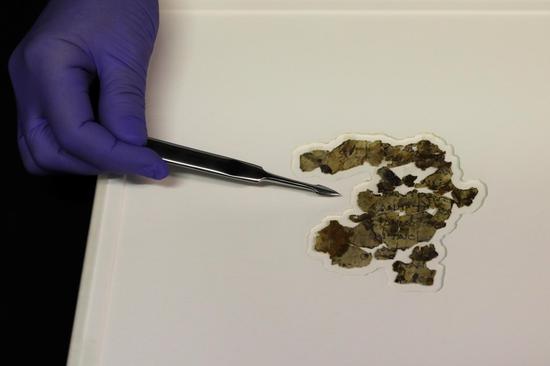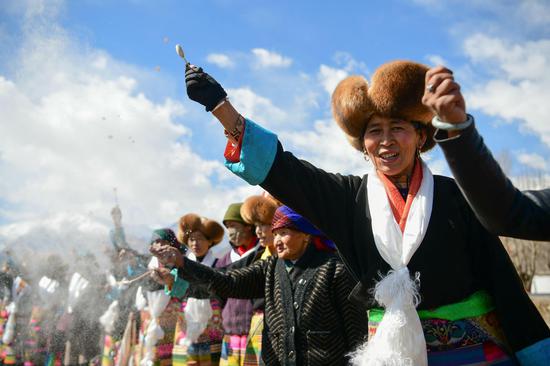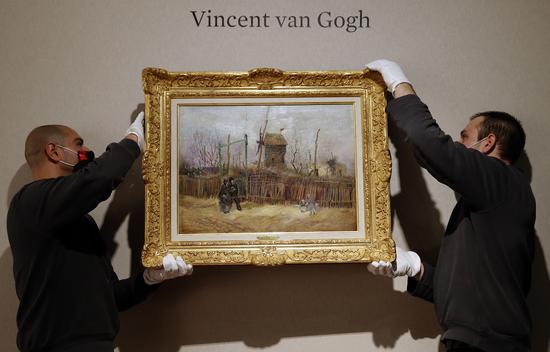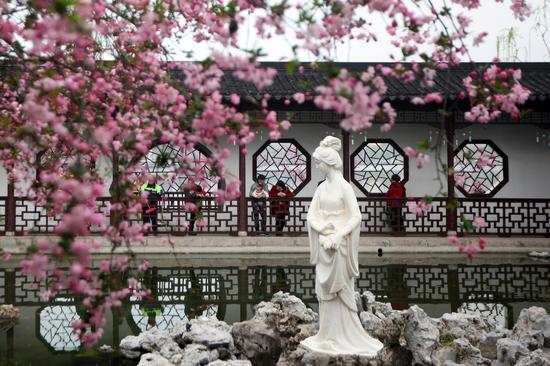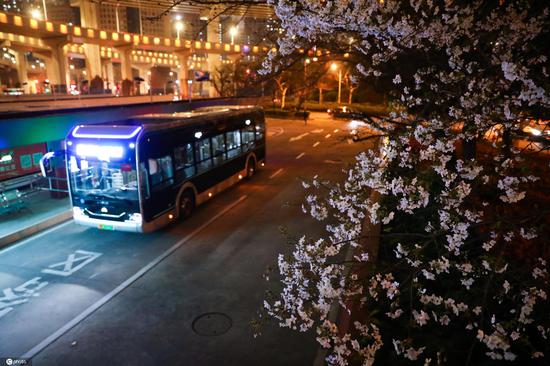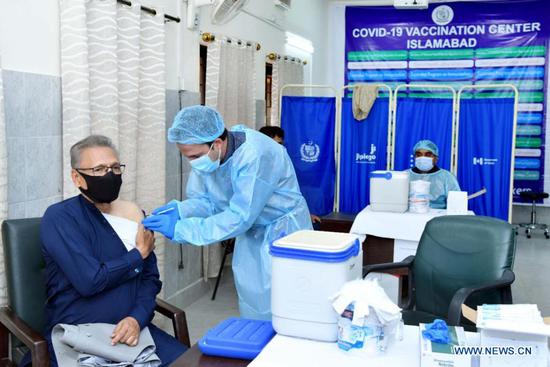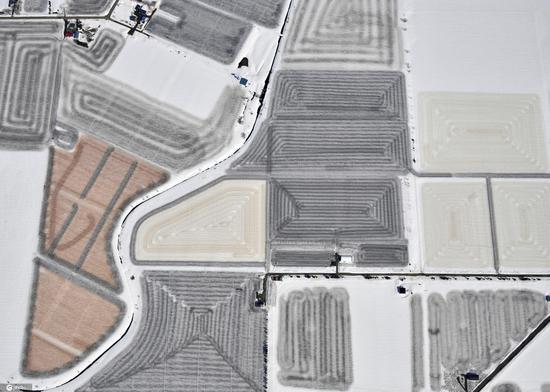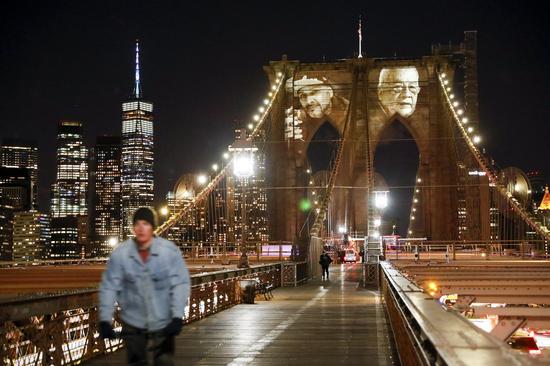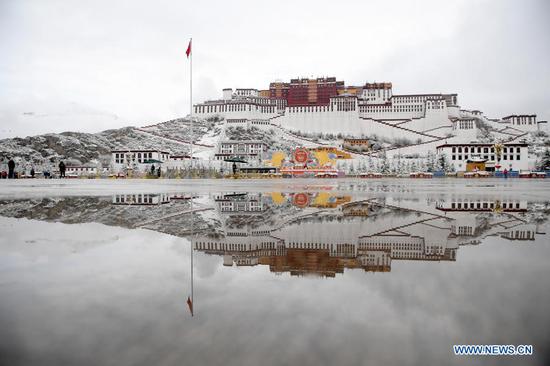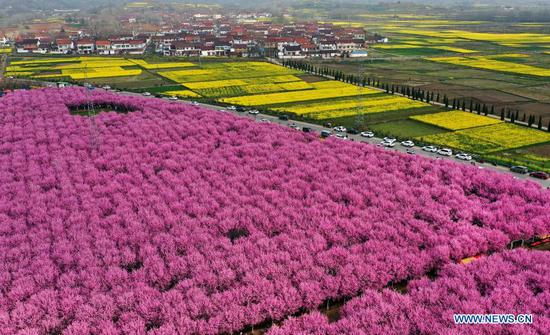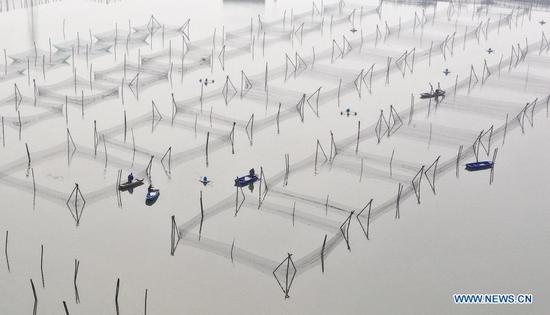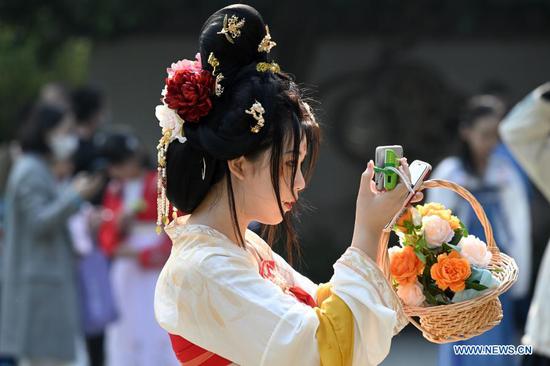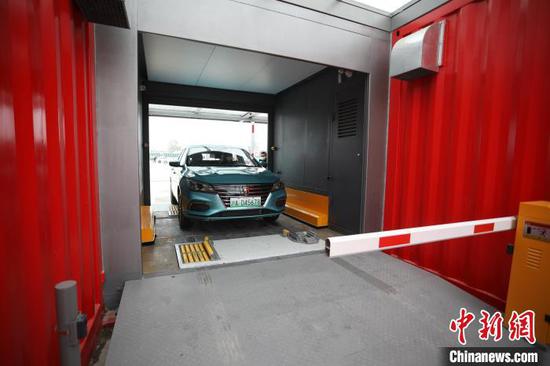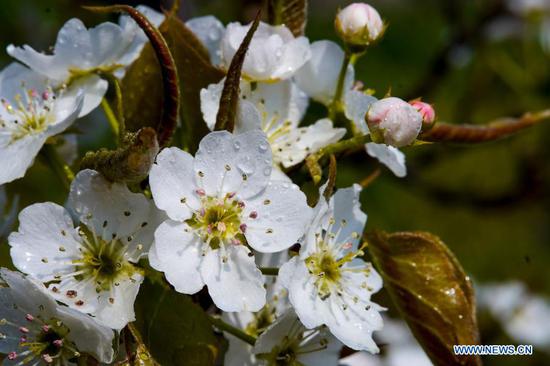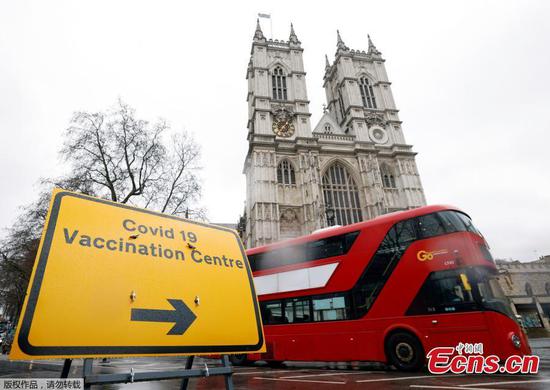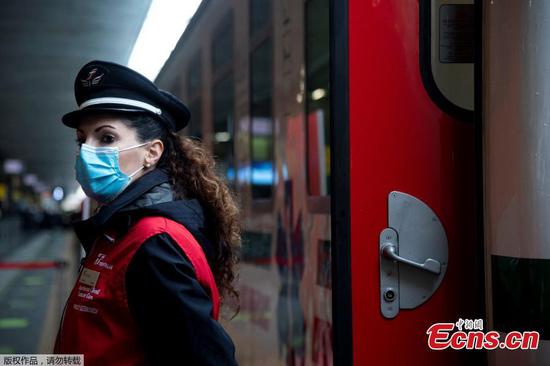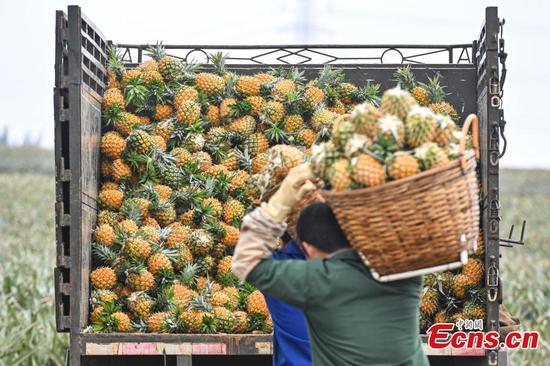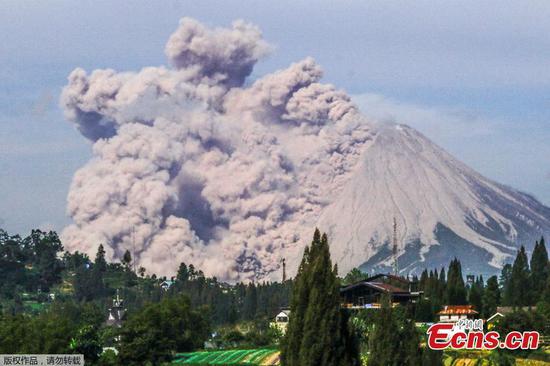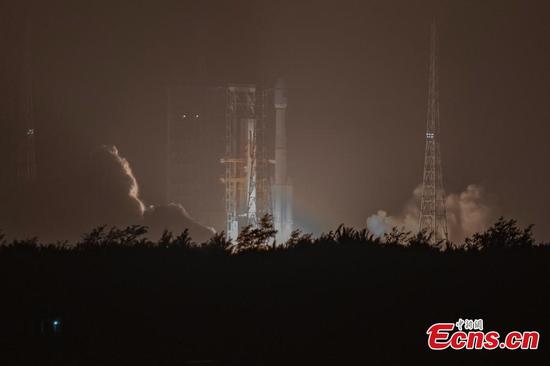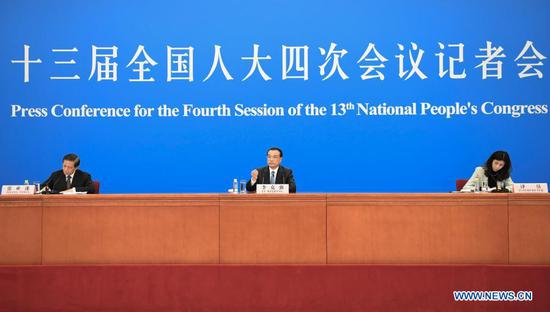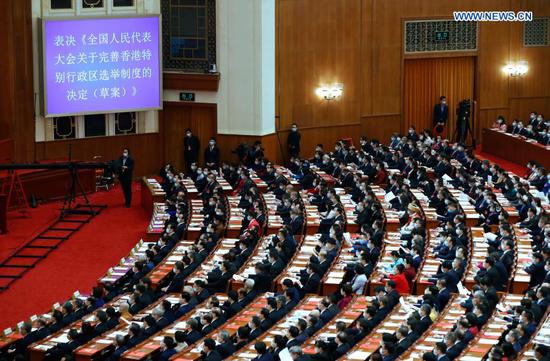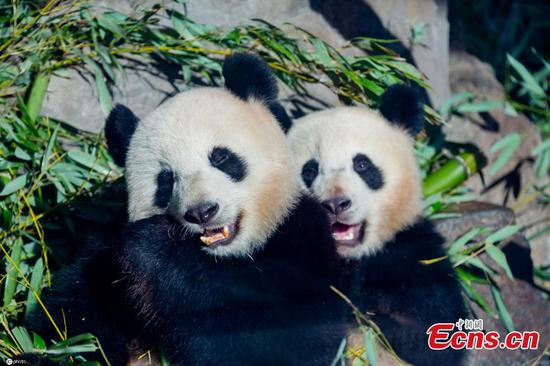The United States has a lot to learn from China's standing up from the last world economic crisis that happened over a decade ago, especially its efforts to develop human resources and determination to lead on the public good, reported World Politics Review (WPR), an online publisher of in-depth news and expert analysis on global affairs, on Wednesday.
The last time the global economy cratered, in the fall of 2008 in the wake of an American banking crisis, it was China that set the pace -- both in insulating itself from most of the damage, and in generating enough new demand in its own economy to prevent a far worse downturn than the already terrible recession suffered in much of the rest of the world, said the WPR report.
"Even now, years later, the scale of China's response back then is poorly understood," it added.
As the economic historian Adam Tooze recounted in his 2019 book, "Crashed: How a Decade of Financial Crises Changed the World," the Chinese state directed roughly 1.2 trillion U.S. dollars in stimulus between 2010 and 2012 at just one modest-sized province: Hubei, with a population of 57 million people, modest by China's standards.
"Taken at face value," Tooze was quoted as writing, "this meant that a single Chinese province with a population the size of the UK and a GDP the size of Greece was engaging in a program of investment larger than any stimulus ever attempted in the United States."
INVEST IN PEOPLE
Famously, China's emergency investment program poured extraordinary sums into a national infrastructure plan, extending its world-leading high-speed rail network and adding to the massive quantity of new roads and airports it has built in the past generation.
But that is far from all. Much less well known outside of China is the way it took advantage of this crisis to invest in its own people -- meaning in public welfare, especially targeting lower income groups and the outright poor.
"Better than any other large economy in recent history, China has demonstrated the gains of investing in its own people," said the report.
According to Tooze, China built 2,000 new county-level hospitals and 5,000 township clinics, while also extending national health insurance coverage from 30 percent to 90 percent of the rural population, building an impressive stock of new low-cost housing, and putting spending money in the pockets of ordinary people.
NO REST ON LAUREL
"What Tooze concludes about the motivations behind China's actions at the time are as relevant to President Joe Biden's post-pandemic recovery strategy today as any of these details," said the WPR report.
"Given the geopolitical conclusions that are apt to be drawn from China's 'overtaking' of the United States, it is worth noting that the 2008 mobilization was not part of any master plan," Tooze was quoted as writing. "It was a hyperactive response to an unforeseen emergency that struck China from the outside." And he added that "the dramatic impact of the stimulus had consequences that were political and geopolitical as well as economic."
To be clear about what this means, said the WPR report, just before the 2008 crisis, China's GDP was roughly one-third that of the United States or the European Union, measured by market exchange rates. Four years later, it stood at half the size of the EU economy, and just slightly less than that compared to the American economy.
"The point is that in order to compete in the global economy, one can never afford to rest on one's laurels. And better than any other large economy in recent history, China has demonstrated the gains of investing in its own people," it added.
GLOBAL COMPETITION
"Whether or not American politicians feel they can afford to acknowledge it, China itself has shown the best way to compete with it," said the WPR report.
Global competition nowadays is above all a competition centered on human resources. Doing well in this kind of contest requires constant investment in upgrading the education, skills and basic living conditions of the wider population, as opposed to willy-nilly allowing almost all new wealth to be concentrated in the hands of a few, it added.
"This is, in fact, the overall direction of Biden's new, 1.9 trillion U.S. dollars of COVID-19 relief package, dubbed the American Rescue Plan, as well as much of the rest of his emerging economic program," said the report.
This includes, of course, Biden's ambition to overhaul America's badly neglected infrastructure, along with a strong emphasis on what he calls "equity," which means doing more to help populations that have been historically discriminated against or denied opportunities to thrive.
This could scarcely have begun in a more dramatic way than with a move to reduce childhood poverty by half in the world's wealthiest society, by expanding the child tax credit as part of the rescue plan.
"This marks the first time since the 1960s that poverty reduction of any kind has been a major emphasis of American politics," said the WPR report.
As many commentators have said in recent days, this feels like the final, belated rescinding of Reaganism in the United States. But rather than thinking about this in a backward-looking way, it is more useful to frame this in terms of competing in the world of the near future, it added.
LEAD ON PUBLIC GOOD
The broader lesson for the Biden administration is even more important, though. Just as China didn't respond to the 2008 crisis with a master plan for global dominance, but rather pursued the fulfillment of some of its most basic needs, the United States must learn to compete with China by finding far more purpose and fulfillment in virtue, said the WPR report.
"This idea came home most clearly in recent days as headlines proclaimed that Washington was teaming up with India, Japan and Australia to compete with China to provide COVID-19 vaccines throughout Asia," according to the report.
"This message seems both unnecessary and counterproductive," it said.
It is sufficient for the United States both to do and be seen doing the right thing by promoting global health in the midst of a crisis like this. In soft-power terms, it is the virtue at the heart of such efforts that reinforces relationships most. In any great-power rivalry, there will always be places where direct pushback is called for, said the report.
"But seeking to score points at China's expense by setting it up as the dark rival in the supply of vital public goods, in this case the vaccines that are key to ending the pandemic, only detracts from Washington's efforts," it added.
"Wherever it can, domestically and abroad, the U.S. must work to develop the reflex of leading on behalf of the public good," said the report.
In fact, it should publicly applaud China when it does so, too. It may just find, in this manner, that it wins more friends and influences more people in positive and lasting ways along the way. In the long game of global competition, in the meantime, it will be doing more often what needs to be done, it added. Enditem











